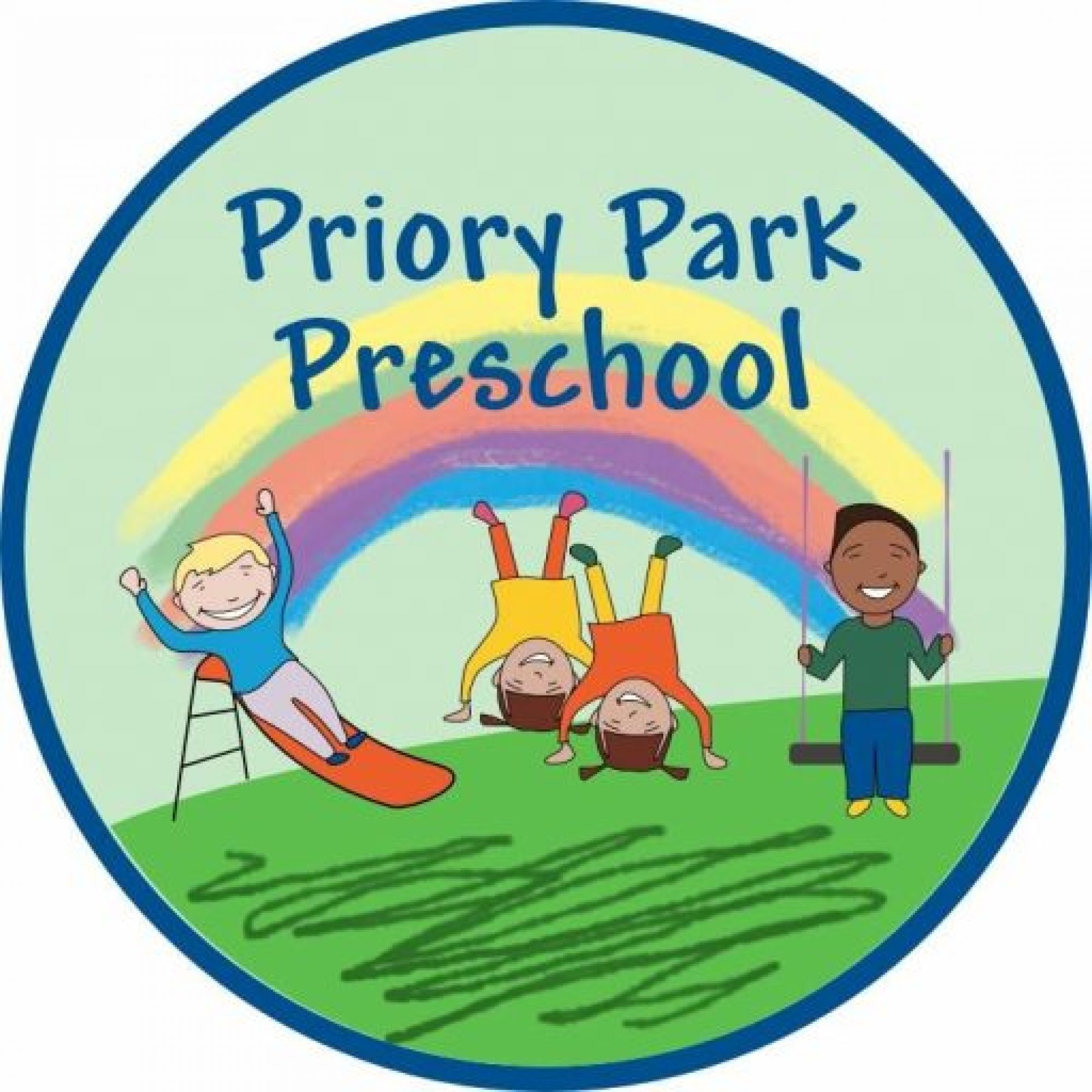Our Curriculum
At Priory Park Preschool, We have developed our own unique curriculum that supports the development of our children. We understand that all children develop at their own pace and we have put in place a curriculum that reflects this. It is a working document that changes with each cohort of children, each academic year. We have a curriculum that will support our children’s learning and help them to achieve independence, confidence and become respectful learners ready for their next educational adventure!
Our curriculum has been divided into four pillars of learning:
Wellbeing Warriors, Respectful Communicators, Independent Investigators and Responsible Learners.
Each of these pillars reflect the areas of learning we hope for our children.
Wellbeing Warrior
Our children are happy and settled in our environment and know that adults can offer support when needed. They will develop confidence in their own abilities to explore the setting and navigate their play.
Our children begin to understand the emotions they feel and show empathy to other’s feelings.
In situations they can regulate and negotiate big feelings and solutions to problems.
Our children are making friendships and learning to play – listening and responding to others. They become more assertive in their play, appointing responsibilities to friends.
Our children show a sense of responsibility and understand why we need rules and boundaries. They use their voices and choices to implement our ‘Golden Rules’ and to choose the resource and lead their own play.
Our children begin to understand the importance of a healthy body, healthy eating, and hygiene. They know the effects of exercise on their bodies and how they can promote a healthy body (washing hands, using toilets, oral health and making healthy choices)
Our children can freely explore indoors and outdoors developing their core strength, agility, balance, spatial awareness, co-ordination and stability.
Responsible Learners
Our children use all their senses to explore the environment – using the environment and play to develop their learning skills in activities such as counting open ended resources, tipping, pouring and filling containers in our exploration trays and water play, recognising some letters from their names and recognising numbers.
Our children are developing good gross motor and fine motor skills through different activities- such as mark making, using scissors, threading, playdough, rolling hoops, using large paint brushes outside, using easels.
Our children develop their imaginations through inviting activities that spark their interests, drawing from life experiences, using available resources, and extending their vocabulary.
Our children learn about how to use books – extracting information or enjoying a story. They learn to sit and focus their attention showing their willingness to learn. The children will discover poems, non-fiction, rhyme and become engaged in storytelling through looking at books or retelling stories through role play.
Our children learn to take ownership of their personal self-care learning – putting on coats and shoes independently, zipping up/buttoning up coats/hoodies, pulling up trousers and underwear.
Respectful Communicators
Our children learn how to initiate conversations between friends and with adults – Asking questions, sharing ideas. They can follow instructions and show pride in being a great communicator.
Our children learn to be within a small group, taking turns in listening and talking. Sharing life experiences and learning about others.
Our children will begin to learn how to collaborate with others and work as a team to achieve end goal. Communicating and sharing ideas how to achieve this and supporting others’ ideas.
Our children show understanding in what others are saying/questions being asked by learning how to listen.
Our children learn a varied vocabulary from the engaging and thought-provoking resources provided by our setting – role modelling through their play by themselves and adults around them.
Independent Investigators
Our children develop confidence in trying new activities, showing increasing resilience in the face of challenges, using problem solving skills and communication to overcome these challenges.
Our children explore a range of mark making materials, learn how to manipulate them and learning about the changes they make. They use different materials to construct and use a narrative to their play.
Our children investigate the world around them noticing/recognising numbers, shape and print in the environment and knowing it can be used for all purposes in life. They discover the world outside their immediate families, people from their communities, lifestyles and other cultures.
Our children will engage in and discover music in the environment through instruments, music, and singing songs. They learn about rhythm and may create their own music/songs.
Our children begin to embark on a learning pathway of how technology works in all different ways, computers, navigating simple programmes, discovering how things work– readying them for the technical world we now live in.
Under the Early Years Foundation Stage (EYFS), there are set standards for learning, development and care for children up to the age of 5. Here at Priory Park Preschool we strive to follow the guidelines set out, along with working to the 4 key principles of learning. Following the Government Frame Work enables us to give children the skills needed to start school and grow into well rounded individuals.
The Early Years Foundation Stage – The Principles
- A Unique Child -Every child is a competent learner from birth who can be resilient, capable, confident and self-assured.
- Positive Relationships -Children learn to be strong and independent from a base of loving and secure relationships with parents and/or a key person.
- Enabling Environments – The environment plays a key role in supporting and extending children’s development and learning.
- Learning and Development – Children develop and learn in different ways and at different rates and all areas of learning and development are equally important and interconnected.
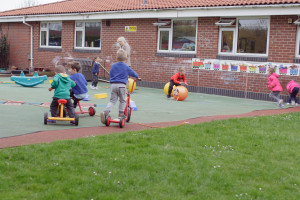

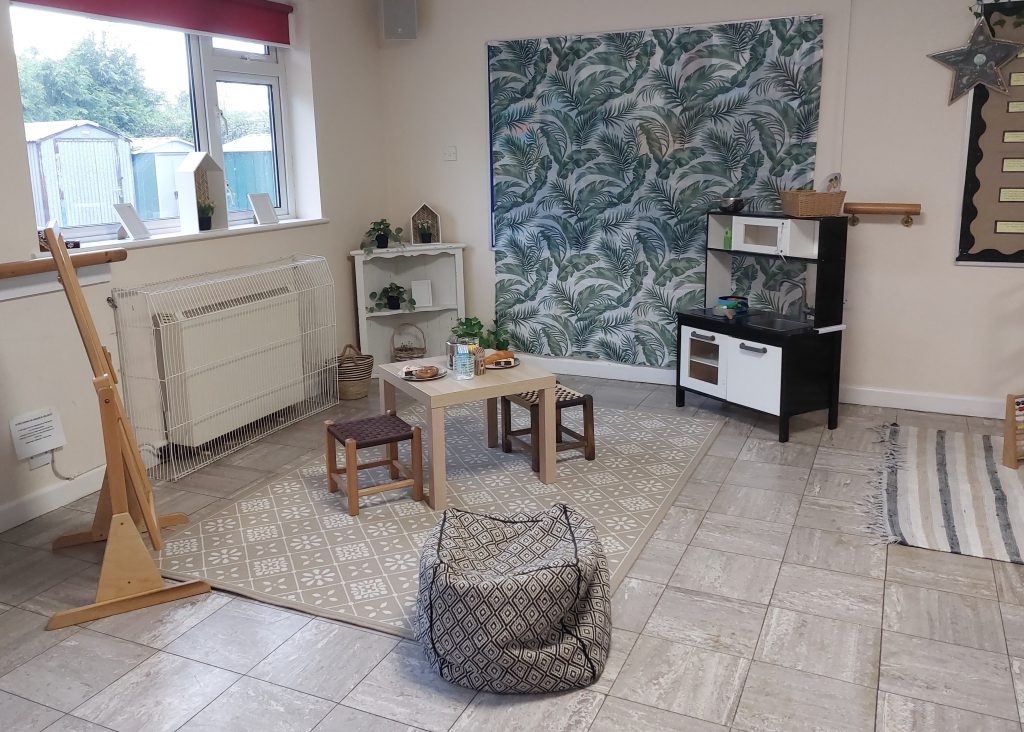
The Early Years Foundation Stage – The Goals
1.Personal, social and emotional development – developing a positive sense of themselves, others and to develop respect for others.
2. Communication, language – developing confidence and skills in expressing themselves, to be able to speak and listen in a range of situations.
3. Physical development – develop co-ordination, control and movement. Help to understand the importance of physical exercise and to make healthy food choices.
4. Literacy – encourage linking sounds to letters.
5. Mathematics – improve counting skills, understand the use of numbers. Describe shapes, spaces and measurements.
6. Understanding the world – make sense of their physical world and community. Explore and observe technology and the environment.
7. Expressive art and design – use a wide range of media and materials. Share thoughts, feelings and ideas through art, music, movement, dance, role play, design and technology.
A Day at Preschool
Children are greeted on arrival and asked to place their name tag on their Key persons board, coats and bags on their pegs. We have a ‘how are you feeling’ board on arrival so the children can think about their emotions and decide how they are feeling. A typical day involves welcoming the children in with a smile! Then the children are free to explore and play at their leisure. We offer a free flow system from inside to the garden area giving the opportunity for children to choose and direct their own play. The children at Priory Park learn through their choices and we ensure their voices are heard. We promote positive self esteem and self belief by having daily preschool helpers who help the grown ups which really promotes independence and role modelling positive guidance.

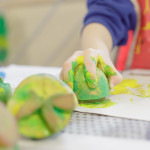
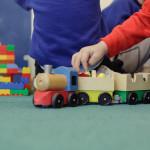
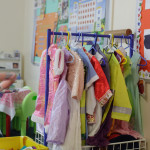


The staff prepare weekly plans linked to the individual needs of the children, enhancing their play, interests and learning. Each child has a Keyperson who observes and keeps records of the child’s development and activities, this record can then be viewed by parents or carers at anytime.
